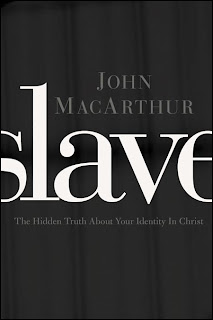- From the teaching of Jesus we learn that slaves are not greater than their master; neither are they privey to the Masters plans
- Jesus used slave language to define the reality of what it means to follow Him. Discipleship, like slavery entails a life of total self-denial, a humble disposition toward others, a wholehearted devotion to the master commands in everything an eagerness to serve Him in his absence, and motivation that comes from knowing he is well pleased.
- A slaves's life was one of the couplete surrender, submission, and service to the master- and the people of recognized the parallel
- Exclusive ownership: Roman law considered slaves to be property in the absolute control of the owner.
- As Paul told the Romans, "thanks be to God that though you were slaves of sin, you became obedient from the heart to that form of teaching to which you were committed and having been freed from sin, you became slaves of Righteousness (Rom 6:17-18)
- As Christians, we are part of a people for his own possession (Titus 2:14), having joined the multitude of those who belong to Christ Jesus(Gal 5:24) and who worship Him as our Master in heaven(col 4.1) Just as first century slaves would receive new names from Christ.
- Rev. 3:12 "I will write on him the name of My God, the new Jerusalem, which comes down out of heaven from My God, and my new name." Believers in the eternal state will serve the Lord as his slaves forver, and his name will be on their foreheads (Rev 22:4)
- As Christ is Lord, so the Christian is slave, even bondslave, owing unquestioning, obedience. Paul explicitly compares spiritual with literal slavery (e.g. Colossians 3:22-24)
- You are not your own, you are bought with a price
- To be akive at all means fruitful labor- the slaves exist only to work!(1 corintians 6:19,20, Philippians 1:22) So represented, consecration is complete moral submission to Christ's absolute claim and ownership.
- 1 Corinthians 6:19-20 Don't you realize your body is the temple of the Holy Spirit, who lives in you and was given to you by God? You do not belong to yourself, for God bought you with a huge price. So you must honor God with your body.
- "By this we know that we have come to know Him, if we keep his commandments."
- As slaves we are expected "to obey Jesus Christ(1 peter 1:2), "to present [our] bodies as living and Holy sacrifice, acceptable to God, which is our spiritual service of worship" (rom 12:1), and to keep his commandments and do the things that are pleasing in his sight(1 john 3:22)
- you have been bought with a price Paul told the corinthians therefore Glorify God in your body (1 corinthians 6:20) Whatever you eat drink or whatever you do it all for the Glory of God.
- We cannot simultaneously serve God & money, worship the true God and idols, or live according to the spirit and the flesh. 1 cor 10:31;Col 2:12;3:17 1 Thess 2:12
- Believers are to please him in all resects (col 1:10)
- 1 Thess 4:1 ...and to do that which is acceptable to God (rom 14:18). We are called to seek his glory in everything we do, longing to conduct ourseves in a manner worthy of his name 1 cor 10:31; col 2:12; 1 Thess 2:12
- Matthew 6:31-33
- Those who make pleasing God their highest priority can be confident that he will take care of them.
- No one understands this principle better then the Apostle Paul. As a "slave to Christ,"he had given everything to serve his master. Paul's ministry was not an easy one. Paul had been beaten, imprisoned, endangered, and threatened with death. Yet in spite of it all, God always provided Paul with all that he needed to faithfully accomplish his ministry.
- Paul wrote "Be anxious for nothing" He wrote to the Philippians, "but in everything by prayer & suplication... let your requests be made known to God" (4:6)
- Paul tells timothy "If we have food & covering with these we shall be content" 1 Tim 6:8)
- Based on Lifetime of trusting his master, Paul could confidently tell the Phillipians , "My God will supply all your needs according to his riches & Glory in Jesus Christ (4:19)
- Paul told the corinthians, "God is able to make all grace abound to you, so that always having all sufficiency in everything you may have abundance for every good deed" 2 cor 9:8) Paul himself relied daily on Christ resting in God's promise to him: "My grace is sufficient for you, for power is perfected in weakness (2 cor 12:9)
- Rom 8:55
- The desire to please the master is heightened by the knowledge that each one of us will give an account of himself to God (Rom 14:12)
- For we must all appear before the judgement seat of Christ, so that each one may be recompensed for his deeds in the body, according to what he has done" 2 cor 5:10

